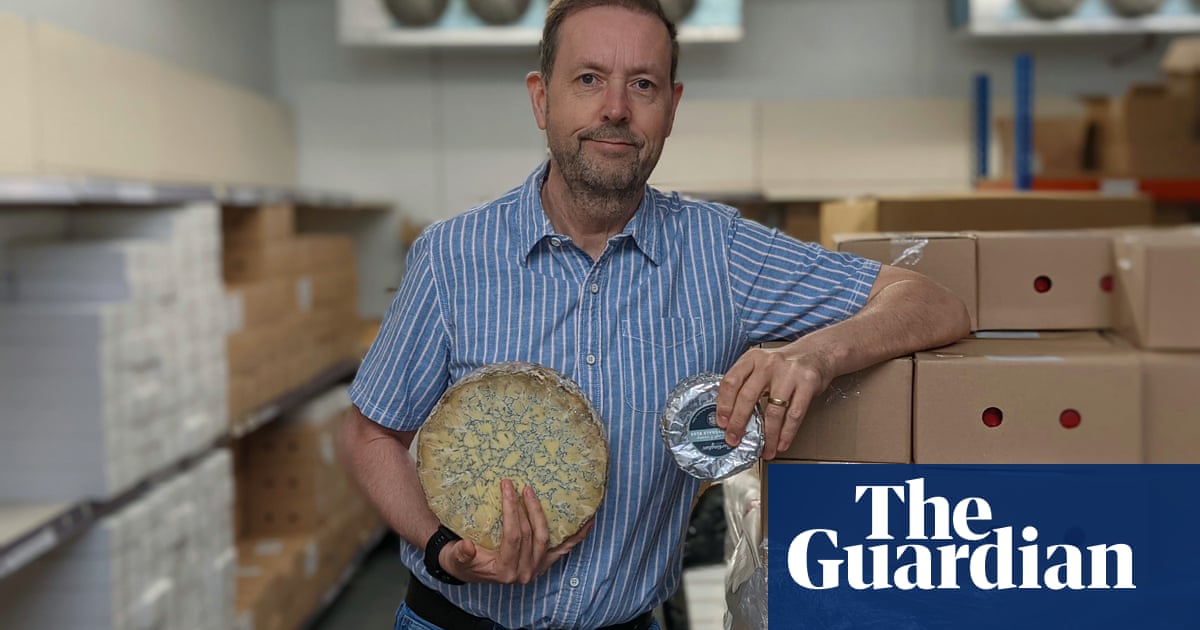A British cheese maker who was forced to sell his business because of a £600,000 loss caused byBrexitred tape has welcomed the new deal with Brussels – but says it comes four years too late.
Simon Spurrell, who made headlines whenhe highlighted prohibitive export costsafter the UK’s exit from the single market, said he was delighted the “grownups are back in the room” and he will now consider relaunching his business as long as the details are confirmed.
“It is good news but we could have had this from day one. It is just such a shame it has taken so long, we could have had this in 2020,” he said.
His company’s business modelwas upended overnightunder the hard Brexit deal sealed by Boris Johnson with20% of sales revenue disappearing immediately.
The former prime minister decided to reject the EU’s offer of a Swiss deal obviating the need for veterinary certification on food including red meat, poultry and shellfish because it would have meant the UK aligning itself with EU rules.
A version of the Swiss deal, with most sanitary and phytosanitary checks eliminated, is now back on the table, with hopes it can be concluded within a year.
Brexit meant Spurrell faced charges of £180 per veterinary certification on retail orders on the continent, even for cheese packs worth just £35.
Initially Spurrell, who had committed to a £1m expansion for his growing CheshireCheeseCompany, tried to get around the new trade barriers considering warehousing cheese on the continent.
But the costs were prohibitive and he sold to a larger business who had a distribution centre in the Netherlands and a legal entity to export to in Germany.
“They were exporting to themselves but it still meant the UK was losing out. They have to pay 5% of corporate tax and 20% VAT to the Germans and the transport costs have to be paid to the Dutch, so margins are tight. This deal potentially does away with that but we have to wait to see if it includes no checks for orders from individual customers,” he said.
Even if not, this is huge news for small and medium-sized businesses, he said.
“Our biggest consumer market, 27 neighbouring countries that we lost, is open again. It is the small producers that lost out from Brexit. The biggest companies and supermarket chains were able to shoulder the costs.
“Now we can stop fishing in this small pond and cast our net wider again. Everybody has been waiting for this to happen. Just thank heavens the grownups are back in the room instead of people trying to make the EU to be the bad guys when it is the British government who cut us out of the market in the first place and rejected the original SPS deal.”
He added: “All the Tories were interested in was soundbites and sabre-rattling, not British business.”
In 2021, the first year of Brexit trading operations, Spurrell lost £240,000 in wholesale and consumer business inEuropeand was looking at another hold of £350,000 the following year before deciding to sell up.
He said the alliance with Joseph Heler, a much larger concern, offered strategic means of dealing with costly Brexit trade barriers.
“If you are large enough you can mitigate the increased costs because the cost of the paperwork for one pallet of cheese can be spread across 100 pallets. It will also benefit all the customers in the EU because they can get a local delivery rate,” he added.
Spurrell said the deal, which was undertaken for an undisclosed sum, was also great news for his workforce. All head office, production and warehouse staff will be retained while 14 additional full and part-time jobs will be created.
